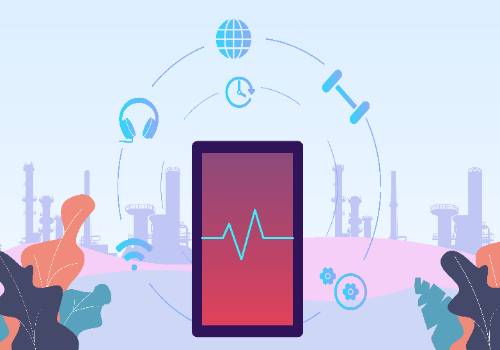
1、仁爱版英语九年级Units 3-4总复习要点 1. It takes sb. some time/some money to do sth. 某人花时间/花钱做某事 It takes me three hours to complete this job. It took her five hundred yuan to buy the pair of shoes. 2. Now, China has become the third nation to send people into space. 此句中得 to send people into space 是不定式作 the third nation 的定语,类似的有: He thought out a good way to solve the problem. 3. I’m moved by what Yang Liwei did. 此句是一个宾语从句 what Yang Liwei did 作介词by的宾语。
2、 She is moved by what her students said. 4. Pleased to meet you. 见到你很高兴。
3、 类似说法: Nice to meet you. Nice to see you. I’m glad to meet /see you. 5. It has proved that China has made great progress in developing its space industry. 这是一个带有宾语从句的主从复合句,其中it 指的是上文的trip,that引导的句子做proved的宾语。
 (资料图片仅供参考)
(资料图片仅供参考)
4、 6. There is no doubt that computers are widely used by workers in business and technology. 毫无疑问,电脑被商业、科技工作者广泛地应用。
5、 no doubt 毫无疑问 There is no doubt that you did the right thing. 毫无疑问,你做的对。
6、 7. Computers are used in business to place and cancel orders. 计算机在商务上是用来订货和取消订单的。
7、 Place an order for sth. 订货,订购,订单 I would like to place an order for ten copies of this book. 这本书我想订购十册。
8、 8. Thanks to the Internet, they can shop and do business at home. 由于有了因特网,他们可以在家购物和做生意。
9、 Thanks to your help, I have made great progress in studying English. 9. Generally speaking, we are in good health now. 总体来说,我们身体状况良好。
10、 be in good health 身体状况好 be in bad health 身体状况坏 It is a pity that he is in bad health these days. 遗憾的是他这几天身体不好。
11、 10. It’s bad for your health if you spend too much time on them. 1) be bad for sth./ sb. 对某事/某物有坏处 Watching TV too much is bad for your eyes. 2) if 引导的条件状语从句的主从复合句要注意时态问题,如果主句用一般将来时从句要用一般现在时表将来。
12、 I will be happy if you don’t go to work tomorrow. 3) spend sometime on sth. 某人花时间或金钱在某事上 4) spend somemoney (in) doing sth. 某人花时间或金钱做某事 She spend two days on this book, you shouldn’t spend too much time (in) watching TV. 11. It’s used for sending satellites or spaceships into space. be used for doing sth. …… 被用来做什么,强调用途或作用 be used as (被)作为…而用,强调被当作工具或手段来用 be used by 被…使用 by的后面跟人/物,强调使用者 sb. used to do sth. 某人过去常常做某事 sb. be/get used to doing sth. 某人习惯于做某事 sth. be used to do sth. …… 被用来做…… 强调用途或作用 Keys are used for opening locks. “Help” can be used as a noun. “Help” 可作名词用 Chalks are often used by teachers. 老师经常使用粉笔。
13、 My mother used to go swimming last year. 我妈妈去年经常去游泳。
14、 She is/gets used to going swimming now. 现在他已习惯于游泳了。
15、 This kind of machine is used to water flowers. 这种机器是被用来浇花的。
16、 12. It’s said that Edison made more than one thousand inventions during his life. 据说,爱迪生一生中做了千多种发明。
17、 此句中的It’s said that… 其中it 作形式主语,真正的主语是that 引导的句子。
18、整个句子是带有主语从句的主从复合句。
19、 It is said that she has got married. 听说她结婚了。
20、 It is not known whether they will come today. 他们今天是否会来还不知道。
21、 13. This method worked well at night as long as the weather was good and the stars could be seen. 在晚上,只要是天气好和能看见星星的情况下,这种方法就管用。
22、 此句中的as long as只要引导的条件状语,相关的短语: 14. as soon as 一……就 as well as 除……之外(也) You must pass the final examination as long as you study hard from now. 只要你从现在开始努力学习,你一定会通过期末考试的。
23、 I will call you as long as I get home. 我一到家就给你打电话。
24、 As well as you, my mother also likes this soft music. 15. We will be able to do anything that can be done on the earth. 我们将能够做在地球上能做的任何事。
25、 此句中的that can be done on the earth是一个定语从句,修饰anything。
26、由于此句中的先行词是anything,关系代词只能用that。
27、类似的还有先行词有以下这些修饰时,关系代词只能用that,不用who或which。
28、如: the first, the last, the only, the same, the very, all, any, no, every This is the very thing that I lost yesterday. 这个正是我昨天丢失的那个东西。
29、 16. I won’t believe there are aliens until I see them with my own eyes. 直到我亲眼所见,我才不会相信有外星人。
30、 not…until… 直到……才…… She couldn’t play the piano until she was eight years old. 直到八岁时她才会弹钢琴。
31、 17. I’d like to be an astronaut when I grow up. 长大了我想当一名宇航员。
32、 此句中的when I grow up是时间状语从句,引导时间状语从句的还有before, after, as soon as等,他们引导的时间状语从句在时态上有一点需注意:如果主句用一般将来时,从句用一般现在时表将来。
33、 You will get much money after you finish this project. 完成这个项目之后,你就会得到很多的钱。
34、 18. But I prefer science to dancing. 但比起跳舞来说,我更喜欢科学。
35、 prefer sth. to sth. 比起后者来说,更喜欢前者。
36、 其中的to是介词。
37、 I know you prefer English to Chinese. 我知道比起语文来说,你更喜欢英语。
38、 19. It is reported that China plans to take part in an international flight to explore Mars. 据报道中国打算加入国际飞行来研究火星。
39、 1) 其中的It is reported that…. 是一个由主语从句引导的主从复合句,it作形式主语,真正的主语是that引导的句子。
40、 类似的结构有: It is well-known that…. It is said that…. It is strange that…. 2) to explore Mars 是不定式在句中作目的状语。
41、 I stay have to see what will happen. 我留在这儿看看会发生什么事。
42、 20. 被动语态 1) 被动语态构成:助动词be + 及物动词的过去分词。
43、助动词be 必须与主语的人称和数量保持一致,并有时态的变化。
44、 Disneyland is enjoyed by millions of people from all over the world. It is also spoken as a second language in many countries. The man was fooled by the two boys. 2) 时态 ①一般现在时 助动词 be + 动词的过去分词 Spanish is spoken as the official language there. ②一般过去时 助动词 was/were + 动词的过去分词 The man was fooled by the two boys. ③一般将来时 will/ be going to do + be + 动词的过去分词 The 2008 Olympic Games will be held in Beijing. ④现在完成时 have /has + been + 动词的过去分词 The book has been translated into several languages. ⑤带有情态动词的被动语态 情态动词 + be + 动词的过去分词 More trees must be planted 21. 现在进行时表将来 用现在进行时的结构表示将来的意思(主要表计划安排好而不容改变的打算)。
45、 My uncle is meeting us tomorrow. I’m leaving this afternoon. When are you leaving for Disneyland? 注: They’re leaving for Beijing tomorrow. = They will leave for Beijing tomorrow. 22. 1) wh- + to do结构它们可以在句中作主语、表语或宾语等。
46、 作主语:Where to go is not certain. 去哪儿还没决定。
47、 作表语:The problem is what to do next. 问题是接下来该干什么。
48、 作宾语:I don’t know how to get to the park. 我不知道怎样到达公园。
49、 2) wh- +to do这一结构在实际运用中作宾语更常见,尤其是宾语复合句变为简单句。
50、 She doesn’t know how she can finish the work. = She doesn’t know how to finish the work. Tom asked me where to go. = Tom asked me where I would go. 注意:由于“wh- +to do”这一结构中不定式的动作是个尚未发生,所以在转换成宾语从句时,通常须加情态动词或用将来时表示未来。
51、 I don’t know what to do next. 我不知道下一步该做什么。
52、 = I don’t know what I should do next. I don’t know how to remember new words 我不知道怎么样记新单词。
53、= I don’t know how I can remember new words. I don’t know where to find a pen pal. 我不知道在哪里能找到一个笔友。
54、 = I don’t know where I can find a pen pal. She can’t decide which to buy. 她决定不了该买哪一个。
55、 = She can’t decide which she should buy. She wants to know when to start. 她想知道什么时候出发。
56、 = She wants to know when she should start. 23. 宾语补足语 1) 宾语补足语是补足宾语意义的句子成分叫做宾语补足语。
57、宾语补足语的结构形式:及物动词 + 宾语 + 宾语补足语(名词、形容词、不定式、分词或介词短语) We all make him a monitor in our class. (名词作宾补) Computers have made the work place safer and better. (形容词作宾补) I agreed her to send her to school. (不定式作宾补) They keep their hearts beating well. (现在分词作宾补) I found every student in good health. (介词短语作宾补) 2) 注意以下特殊结构: ①find it +形容词+to do sth. 此处it作形式宾语,真正的宾语是后面的不定式,形容词作宾补。
58、 Some students found it easy to study English well. ②keep sb. /sth. + 形容词 We should keep our classroom clean. ③make sb. /sth. + 宾补(形容词、名词、省略to的不定式) We had better make our city move and more beautiful. She made him a superstar. 她让他成了巨星。
59、 The boy made the baby smile at last.。
本文到此分享完毕,希望对大家有所帮助。


















